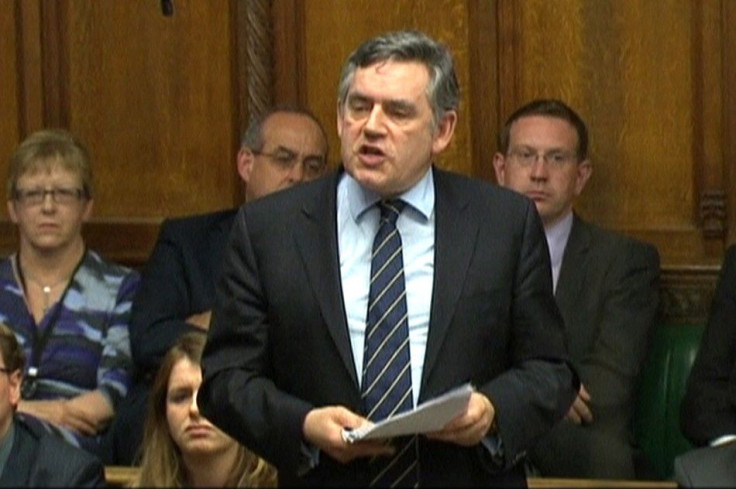Pushing For Girls Education In Pakistan: Gordon Brown’s Last Stand?

Former British Prime Minister Gordon Brown will journey to Pakistan next month to advocate for the rights of girls and young women to an education in what is being called a “day of action” to highlight the problem.
The event will honor Malala Yousafzai, the 15-year-old Pakistani schoolgirl who was shot by Taliban gunmen earlier this month and is now undergoing treatment at a British hospital.
Brown, who is now a U.N. special envoy for global education issues, will meet with Pakistani President Asif Ali Zardari and other education experts and discuss ways to get 5 million of Pakistan’s children (3 million of whom are girls) into the classroom.
Pakistan also has nearly 50 million illiterate adults (two-thirds of whom are female).
According to the United Nations Educational, Scientific and Cultural Organization, or Unesco, a total of 61 million children around the world (a little over half of whom are girls) do not attend school.
"The world -- and young people in particular -- has shown its revulsion at both the actions of the Taliban and the scandal that leaves 32 million girls globally out of school,” Brown said in a statement.
"The time is now to take action to deliver on our promise of universal education. I call on all global citizens to make their voice heard from now until the day of my visit to Pakistan on Nov. 10."
Brown’s involvement in the cause of education in the developing world is but his latest adventure.
Since he resigned as Britain’s prime minister in May 2010, Brown has led a peripatetic existence, seemingly searching for some position to compensate for having lost his power at No. 10 Downing Street.
Returning to parliament as a Labour backbencher representing his Kirkcaldy and Cowdenbeath constituency in Scotland, Brown was subsequently rumored to take over as managing director of the International Monetary Fund. (That possibility was nixed by his successor, Conservative Prime Minister David Cameron and others in government who did not feel Brown was right for that prestigious job.)
Brown then took an unpaid “advisory” job with the World Economic Forum and was also appointed a distinguished leader in residence by New York University.
His current position at the U.N. is also unpaid.
Brown’s relationship with other prominent British political figures has also been fodder for the UK press. Tony Blair reportedly characterized Brown as a “dark cloud” who pressured him into leaving Downing Street.
“[Brown is] brilliant and ambitious, but he's also bonkers, and I just can't be bothered with it," Blair reportedly once told a colleague.
Cameron has been even less charitable in his assessment of Brown. “If you have someone who didn’t think we had a debt problem [running the IMF], they may not be the best person to decide whether other countries have that problem," Cameron told the BBC during his tirade against nominating Brown for the plum IMF post, adding that the fund should be headed by “someone extraordinarily competent and capable."
© Copyright IBTimes 2024. All rights reserved.





















